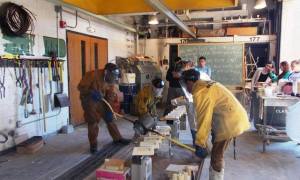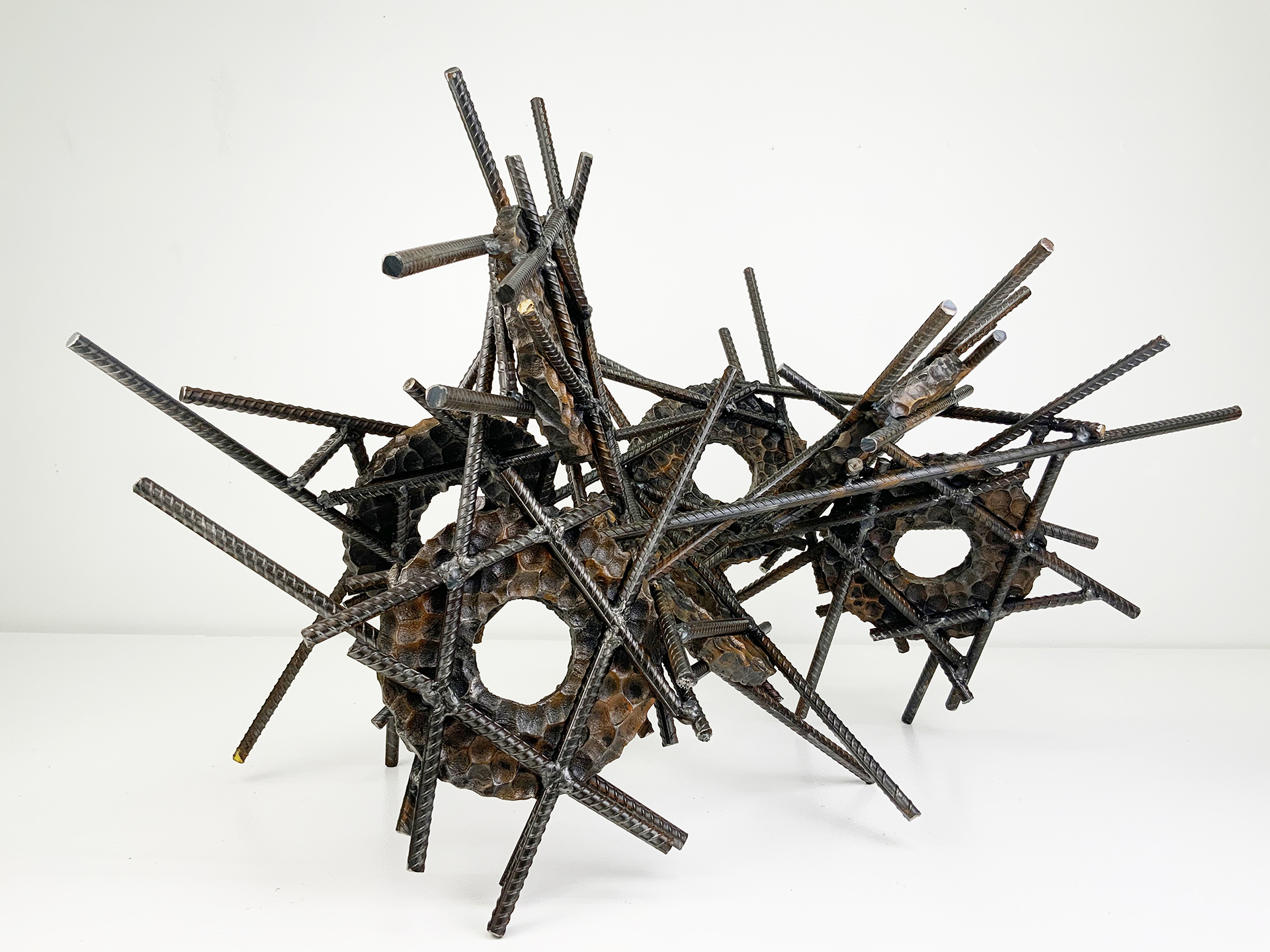[one_third]

[button label=”View Printable Version” url=”https://davidmarquezart.com/wp-content/uploads/2014/09/03Marquez_TP_112112.pdf” color=”#a8a173″ target=”_blank”]
[/one_third]
[two_third_last]
Teaching requires an interwoven balance of communication, challenge, exploration and a sense of community. These elements are crucial components in my strategy to introduce and enlighten students to the conceptual language, created from the processes and products of art. Each element enhances the other in developing and processing ideas. I expect much from my students. Work ethic is critical for success.
Teaching begins and ends with communication. Communication between instructor and students, plus the dialogue that forms within the classroom are common threads that bind all the elements of this philosophy. Expanding knowledge on a verbal and visual level invites students to think, participate and create dialogue that will give them a more insightful experience. Positive and negative feedback has an infinite impact on student concepts. Fostering alternative ideas and interpretations during critiques allows students to question themselves in a process where knowledge and experimentation play a key role.
Art is developed through the processes of making. I challenge my students with techniques and materials that they may have little experience. A dialogue of various materials, methods, tools and their potential for language are necessary to create concepts. I provide explorations that introduce this dialogue throughout my course curriculum. Projects, demonstrations, lecture, readings, vocabulary, slides, video and other media are but a few of the tools I use to subject students to contemporary and historical concepts, as well as methods of fabrication to create art.
Students gain much from their own experiences. I encourage my students to build strategies to develop this discourse into their work. Their personal experiences along with new explorations are potential vocabulary useful towards their research. Demonstration of safe technique and an emphasis on craftsmanship is important and is expected. Yet in addition to this, students are encouraged to explore and research non-traditional materials and processes to establish a vocabulary that is most appropriate for their themes and abilities to make.
As students work, I continue to challenge them, individually and as a group, encouraging them to look around and see what others are doing. This atmosphere creates a more diverse exploration, developing their vocabulary and sense of community. Students achieve proficiency and an evolved understanding of materials and processes as they investigate and share ideas, building knowledge.
The foundations of art are developed through experimentation and creative problem solving. Students are encouraged to investigate relationships as they work through a process, pushing a concept to its limitations. This strengthens the understanding of their ideas, concept and material, preparing them to better express themselves through their visual language. When a student’s investigations are at a standstill, communication with a teacher or a fellow student, sharing knowledge, and challenging an idea can make a positive difference.
Art is a very diverse field. Media and methods are only limited by an individual’s imagination and willingness to explore. Flexibility allows the student to question preconceived ideas. I encourage this flexibility, yet I expect students to think critically and defend their work before, during and after they have devoted their energy towards a final goal.
As an instructor, I find great joy in challenging and inspiring students towards developing their ideas. As a mentor, I hope to facilitate facets that will lead them to develop into more rounded members of society with an increased perception of themselves and the world in which we live. Advanced courses are structured to develop student craft and concept to create leaders in the arts.
[/two_third_last]
